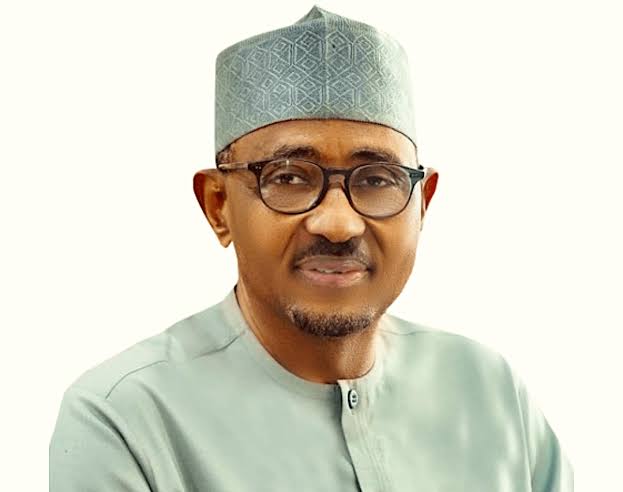Business
Oil price volatility threatens Nigeria’s economy, NMDPRA Chief warns

As global rude oil prices remain on a downward spiral, the Chief Executive Officer of the Nigerian Midstream and Downstream Petroleum Regulatory Authority (NMDPRA), Farouk Ahmed, on Tuesday, sounded the alarm on the ripple effect such instability could have on Nigeria’s economy.
Speaking at a “Meet-the-Press” briefing organised by the Presidential Communications Team at the Aso Rock Villa, Abuja, Ahmed acknowledged that while consumers may welcome lower petroleum product prices, the broader economic reality paints a more troubling picture for an oil-dependent country like Nigeria.
“As consumers, we are happy that the price is coming down,” he said. “But as a nation, it’s not good for our economy because our revenue inflow is also impacted.”
Ahmed pointed to a sharp single-day plunge in global crude oil prices, from $73 to $60 per barrel, as an example of the market volatility straining Nigeria’s fiscal outlook. He further noted that such fluctuations, often triggered by unpredictable policy shifts in the United States, make long-term economic planning difficult for nations reliant on oil exports.
Ahmed referenced policy inconsistencies from U.S. President Donald Trump as a contributing factor to global oil market turbulence, particularly the abrupt imposition and withdrawal of tariffs that continue to shake investor confidence.
“Traders now operate in survival mode,” Ahmed explained. “Some engage in day trading because you never know what tomorrow’s policy will bring.”
The NMDPRA chief emphasized that the U.S. push to drive oil prices below $50 per barrel, through increased local exploration and strategic waivers, has further complicated the global supply-demand balance, with developing economies like Nigeria bearing the brunt.
At home, Ahmed outlined additional hurdles to revenue generation, chief among them pipeline vandalism and reduced oil production. According to recent OPEC data, Nigeria’s crude output has slipped to about 1.4 million barrels per day, well below capacity.
“If we lose $10 per barrel at this current production rate, the negative impact on our economy, national reserves, and the strength of our naira is severe,” he warned.
Turning to domestic supply metrics, Ahmed revealed a drastic shift in Nigeria’s premium motor spirit (PMS) import and production landscape. According to data from the NMDPRA’s tracker, daily petrol imports plunged from 44.6 million litres in August 2024 to just 14.7 million litres by April 13, 2025, a staggering 67 percent drop.
This decline coincides with a major rise in local refining. From delivering virtually no supply last August, local refineries now churn out 26.2 million litres per day as of April, a more than sixfold increase since measurable output began in September.
Ahmed attributed this milestone to the phased restart of the Port Harcourt Refining Company in November and growing contributions from modular refineries. However, he acknowledged that the national supply has only surpassed the government’s 50 million litres per day benchmark twice, 56 million litres in November and 52.3 million litres in February.
By mid-April, supply again fell below target, reaching 40.9 million litres.
READ ALSO: Ojulari takes over from Kyari, as NNPCL names new senior management appointments
Ahmed also presented a breakdown of the contributions from Nigeria’s major fuel suppliers. Oil Marketing Companies (OMCs), which imported about 22 million litres daily in October 2024, peaked at 30 million litres in December and currently provide 55 to 60 percent of the country’s fuel on most days.
Meanwhile, the Dangote Petroleum Refinery and Petrochemicals has steadily increased its output, rising from 10 million litres in October to 22 million litres in January and February, before dropping slightly to 18 million litres by mid-April. The refinery now meets roughly 40 percent of national fuel demand.
In contrast, the Nigerian National Petroleum Company Limited (NNPCL) has exited the supply chain, dropping from 24 million litres per day in October to zero after February 2025.
Ahmed emphasized that the NMDPRA only issues import licenses based on national supply needs and not political pressure.
Ahmed also offered insight into Nigeria’s refinery capacity, revealing that the country currently has 10 operational refineries, six private and four public, collectively producing 1.12 million barrels per day (bpd). Of this, private refineries account for 679,500 bpd, with the Dangote facility alone refining 650,000 bpd.
The remaining capacity comes from smaller modular plants: Aradel (11,000 bpd), OPAC (10,000 bpd), Waltersmith (5,000 bpd), Duport Midstream Limited (2,500 bpd), and Edo Refining and Petrochemicals Company Limited (1,000 bpd).
Public refineries, Port Harcourt, Warri, Kaduna, and the older Port Harcourt facility, contribute 445,000 bpd to the national capacity under the management of NNPCL.
So far, the NMDPRA has issued 47 licences to establish refineries with a combined capacity of 1.75 million bpd and 30 licences to construct facilities with 1.23 million bpd. However, only four plants have secured licences to operate, contributing a modest 27,000 bpd.
Looking ahead, Ahmed disclosed that five key LTC (licence to construct) projects are either at commissioning or construction stages. These include the Dangote refinery, AIPCC Energy’s 30,000 bpd plant, and Waltersmith’s second train of 5,000 bpd.
Ahmed concluded with a call for greater coordination and preparedness across all sectors, warning that volatility in the global oil market, driven by geopolitical shifts and domestic challenges, will likely persist.
“This is the reality of the global energy landscape today,” he said. “As a nation, we must navigate it wisely, ensuring that while consumers enjoy lower prices, our economy remains resilient.”
Join the conversation
Support Ripples Nigeria, hold up solutions journalism
Balanced, fearless journalism driven by data comes at huge financial costs.
As a media platform, we hold leadership accountable and will not trade the right to press freedom and free speech for a piece of cake.
If you like what we do, and are ready to uphold solutions journalism, kindly donate to the Ripples Nigeria cause.
Your support would help to ensure that citizens and institutions continue to have free access to credible and reliable information for societal development.






















